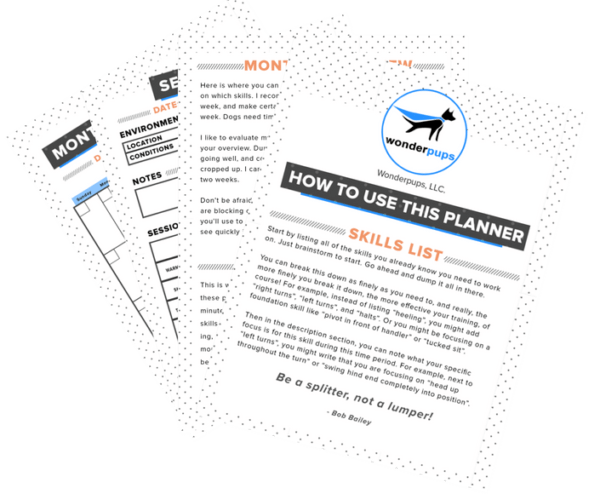Evaluate these two statements:
1. “My dog is not toy motivated.”
2.”Our tugging behavior is not yet strong enough to use as a reinforcer.”
One implies a characteristic of the dog. The other describes the behavior. One is a fixed, unchangeable fact. The other gives us room to develop a practical training plan and change our outcome.
This is a big deal. It seems like words, but psychologically it affects everything we do on both unconscious and practical levels. This is serious business. If you’ve worked with me before, you know I’m not into touchy feely that much. I’m a scientist. An unusually creative scientist, with a sense of humor, and astonishing good looks… but a scientist none-the-less.
Still, there really is actual science behind the idea of mindset affecting outcome. I have certainly experienced and observed the effect. And I’m talking about more than positive thinking. There are many things in life (and dog training) that we can’t control, but our mindset is one of those things that we can TOTALLY control and have a big effect on the outcome.
If you aren’t familiar with Carol Dweck’s work yet, check out this short video of her TED talk:
I lived this with Rugby. It took me a solid year to get him to tug with me, and probably another year to get him to do it reliably in public. Frankly, it was a lot of damn work, but now that I’ve got it… worth it! If I had listened to the little evil voice in the dark recesses of my mind whispering, “he’s just not toy motivated. You are wasting your time.” Well, I would definitely have given up and it would have become one of those self-fullfilling prophecies. But even when that voice whispered, I blocked it with my mental lightsaber, and focused on the power of YET. And it worked!
Take a close look at the language you use when you are talking about your dog… whether with your friends, or with yourself.
So as you are traveling your dog training journey, I want you to keep these 3 things in mind:
- All behavior is modifiable. (A quote from Karen Pryor that I find myself repeating on an almost daily basis.)
- Watch out for labels. They don’t help us in developing a training plan. Do beagles tend to sniff stuff? Do border collies tend to chase cars? OF COURSE! But that does nothing to inform our training decisions. We want to focus our energy on describing the behavior, not the dog.
- This goes for you, too. You aren’t “clumsy” or “bad with a clicker”. You may be missing a few skills to complete your set, but skills can be learned. All behavior is modifiable. Even our own!
Growth mindset. Do it.
